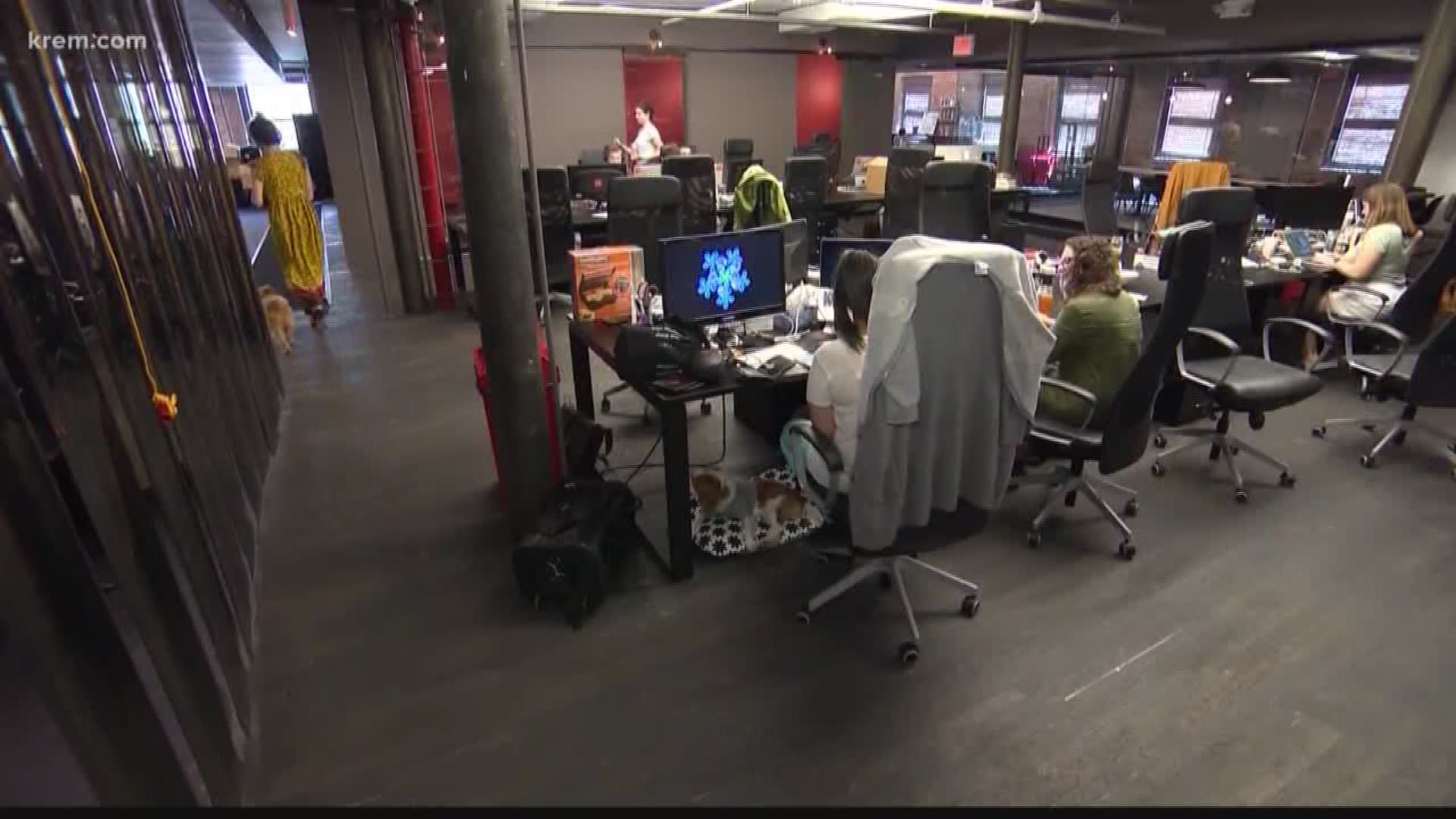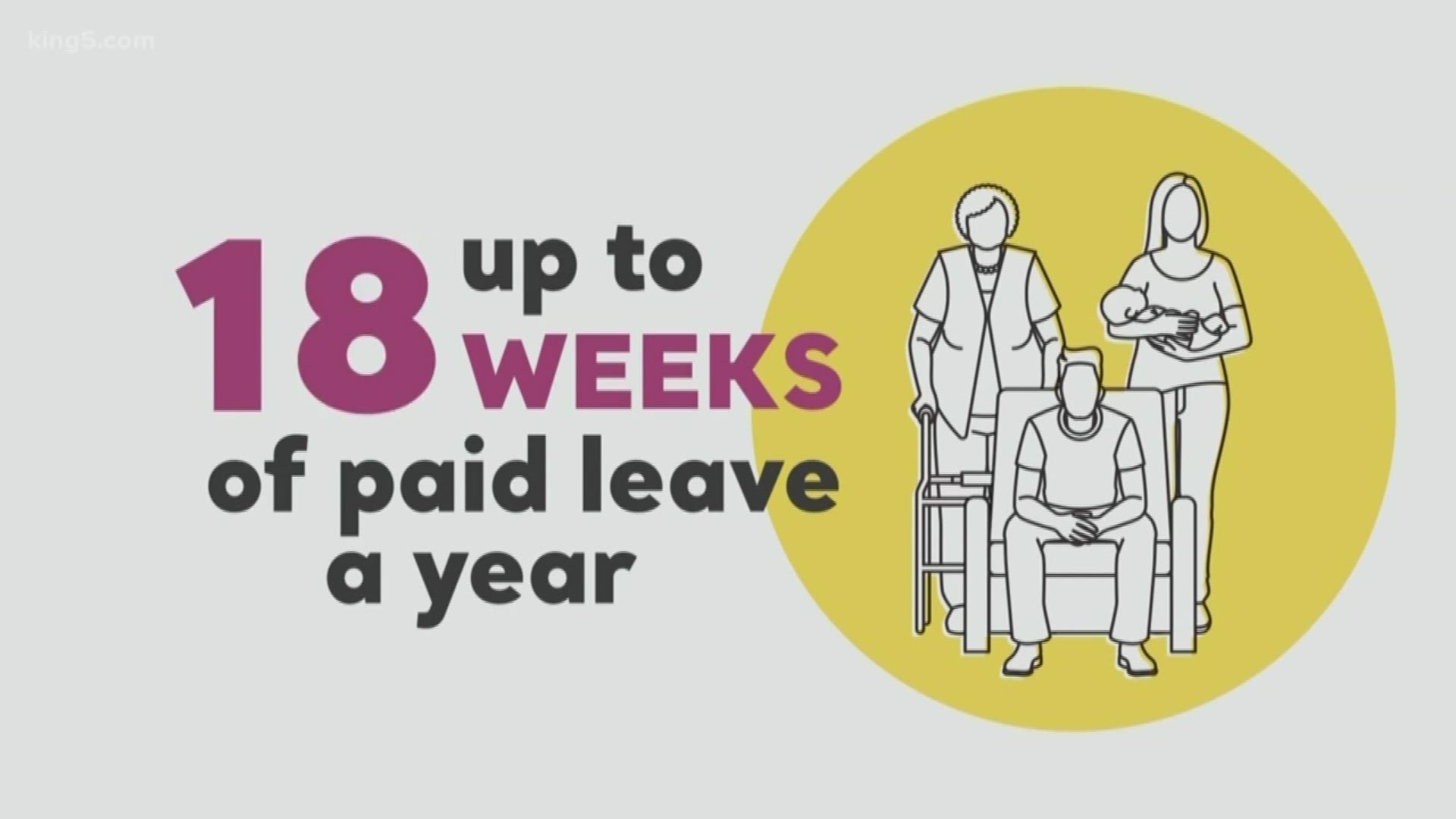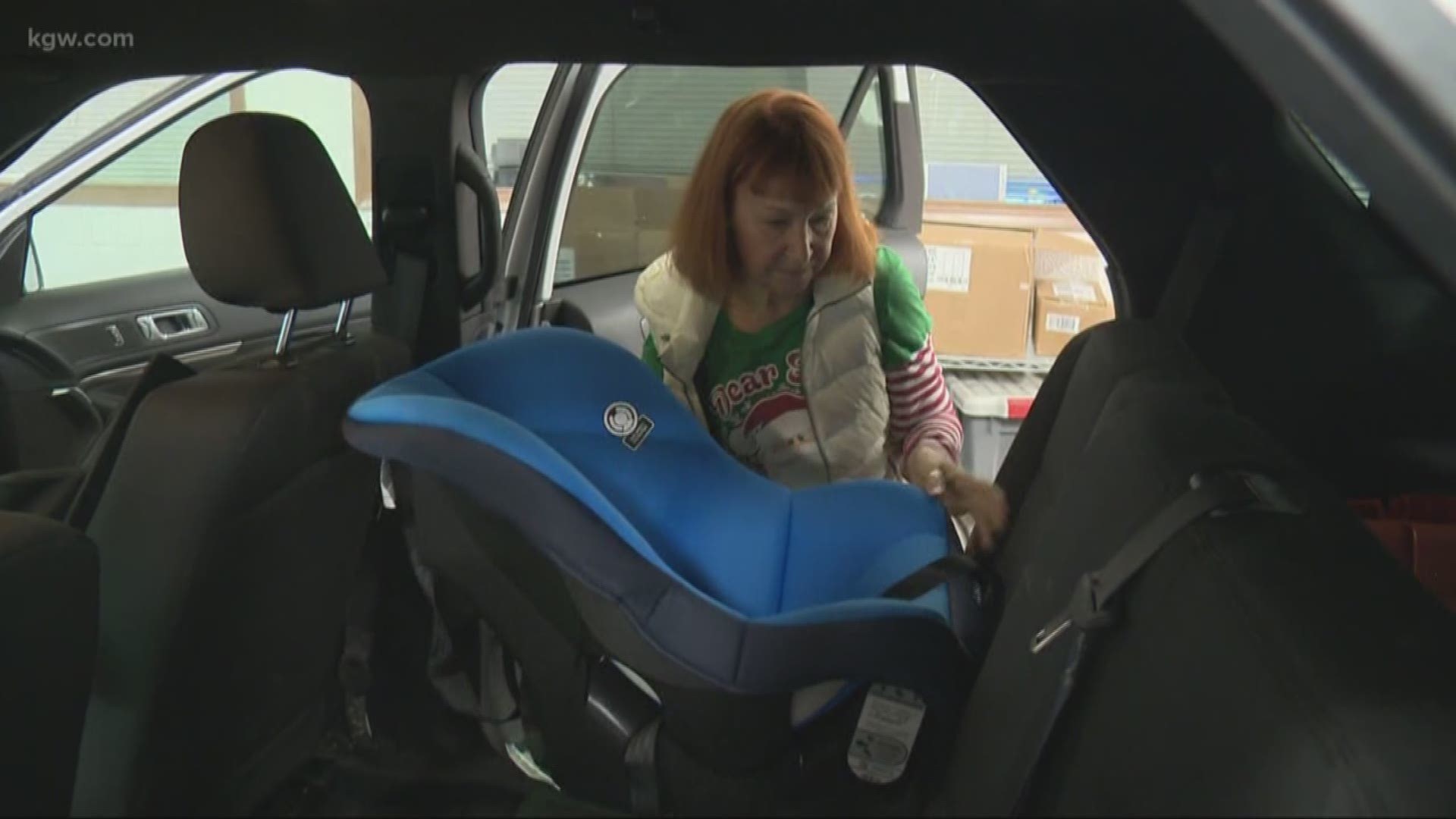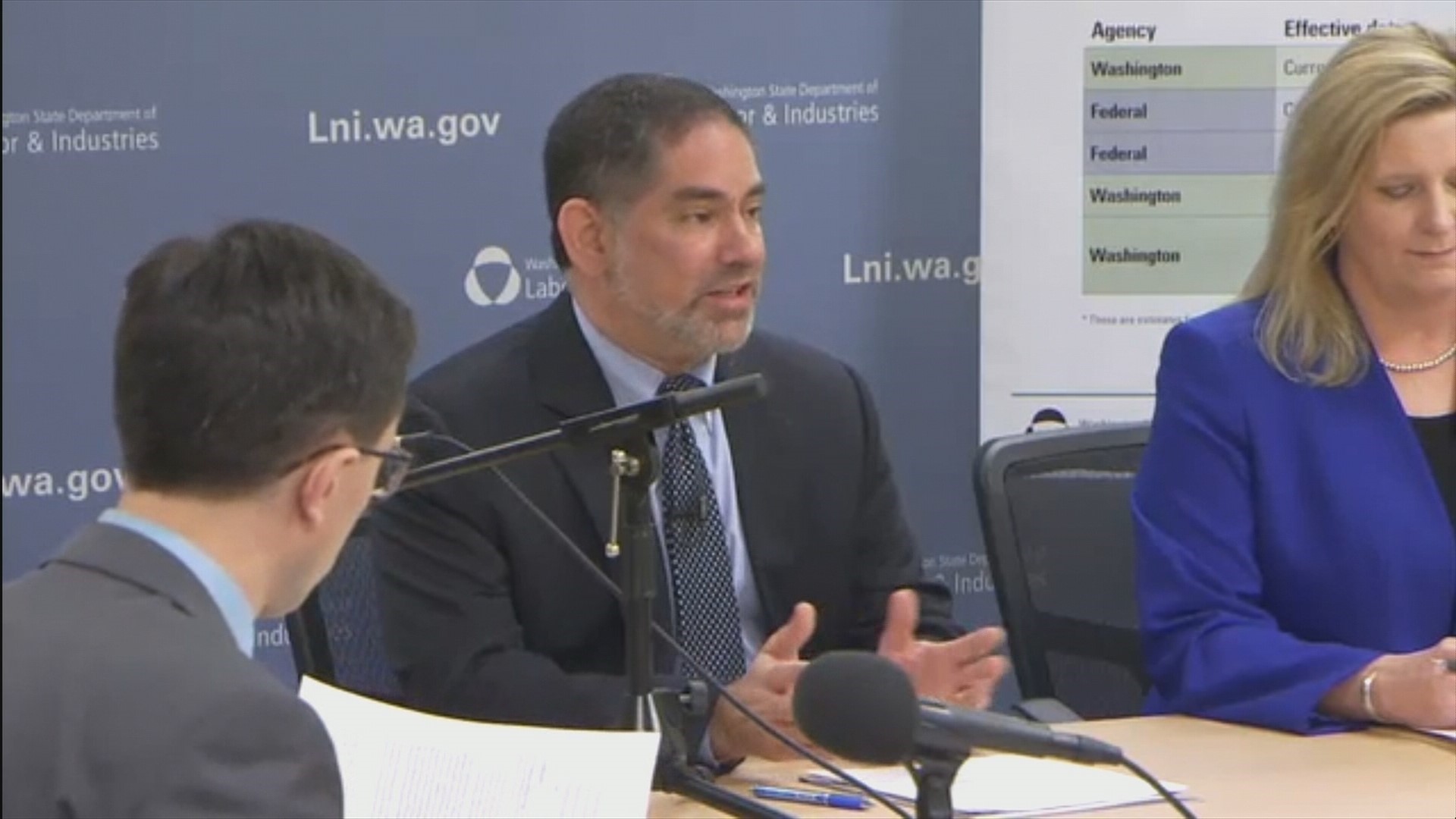SPOKANE, Wash. — The turn of the decade will bring several new laws in Washington state, ranging from rules about smoking to minimum wage increases.
Four of the biggest new laws will go into effect on Jan. 1, 2020, while others will start later in the year.
The following are some of the biggest law changes coming to Washington state in 2020.
4 laws going into effect on Jan. 1
1. Minimum wage increases to $13.50 an hour
Washington voters passed Initiative 1433 in 2016, setting increases to the state’s minimum wage every year from 2017 to 2020, when it will reach $13.50 an hour.
In 2019, the minimum wage raised to $12.00 an hour from $11.50 an hour in 2018. After 2020, the Washington Department of Labor and Industries is required to make an adjustment to minimum wage based on cost-of-living figures provided by the Consumer Price Index for Urban Wage Earners and Clerical Workers, or CPI-W, for short.
Before Initiative 1433 was passed in 2016, minimum wage in Washington was $9.47 an hour, which it stood at for 2015 and 2016. The last time before 2016 that minimum wage didn’t rise each year in Washington was between 2009 and 2010, when it stayed at $8.55 an hour.
The last time the Washington minimum wage was the same the federal minimum wage was 1997, when it was $5.15 an hour.
In Washington, there are a few types of employees that employers can pay less than minimum wage.
According to Labor and Industries, these exceptions include:
- Workers with Disabilities
- However, beginning in July 2020, state agencies cannot pay workers with disabilities less than minimum wage
- Learners
- This includes people learning while on the job, but the employer must prove that certain conditions are met and that there are no experienced workers available
- Student Learners
- Includes students working in part-time vocational training programs or job training programs that correspond with the worker’s education
- Student Workers
- Includes students working part-time at a “qualified educational institutional” to help pay for school costs. This worker cannot have been hired in place of an experienced worker
- Apprentices
- Includes those working in jobs/vocations that require an apprenticeship
Employers must apply for certificates to pay employees they feel meet these requirements at less than minimum wage.
2. Smoking age rises to 21
The smoking and vaping age in Washington was set to rise from 18 to 21 on Jan. 1, 2020, but a new federal law recently implemented this change for all U.S. states.
Gov. Jay Inslee signed legislation into law in April making it so those who want to buy tobacco, vaping products and/or e-cigarettes have to be 21 years old. Anyone who sells to anyone under the age of 21 can be penalized under the new law.
The law only raises the age for tobacco and vaping sales, not possession.
According to the Washington Attorney General's Office, those between the ages of 18-20 when the laws go into effect will not be grandfathered in, meaning it will again be illegal for them to buy tobacco products.
Washington joins at least eight states, including Oregon, in raising the smoking age to 21.
While smoking among youth is down, according to a statewide youth survey, the number of youth vaping has been on the rise in Washington.
The bill, which was 2017-18 House Bill 1054, was passed by the Washington State Legislature by a vote of 63-35.
3. Family leave
The rules for family leave for workers in Washington state are also changing in 2020.
Starting at the new year, a new insurance program called Paid Family Medical Leave is going into effect, and any person who worked at least 820 hours in the last 12 months and had a qualifying life event can take advantage of the policy. This equals about 20.5 weeks at 40 hours a week.
Workers can receive between 12 and 18 weeks of paid leave depending on circumstances for the following qualifying life events:
- Birth or adoption of a child
- Serious illness or health condition, including mental health or addiction illnesses
- Serious illness or health condition of a qualifying family member
- Certain military events involving family, including the return of a deployed family member
Insurance premiums that cover the family leave are split between the employer (one-third) and the employees (two-thirds) for most employers, according to Washington Labor and Industries. Many Washington workers have already seen a few dollars come out of each paycheck in 2019 to fund the program.
Federal employers and employees, federally recognized tribes and the self-employed are exempt from the new state family leave rules. However, the latter two can decide to opt-in.
4. Car seat rules
Changes to Washington state’s car seat laws will go into effect on Jan. 1, 2020.
According to the Washington Traffic Safety Commission, changes to the law include:
- Children up to 2 years old must be in a rear-facing car seat
- Children 2-4 years old must be in a car seat with a harness, front or back facing
- Children 4 years old or older and under 4-foot 9-inches tall must be in a booster seat with a seat belt or in a harness seat
- Children over 4-foot 9-inches tall can be seated with a properly fitted seat belt
- Children up to 13 years old must ride in the back seat when possible
The penalty for breaking the new car seat rules is a traffic ticket.
This means that some kids as old as middle-school aged could be riding in a car seat.
New laws going into effect later in the year
Three other new laws will take effect later in 2020.
1. Vaping ban set to end
The ban on flavored vaping products handed down by the Washington State Department of Health in November is set to expire on Feb. 7, 2020.
The decision to ban the products came after a rash of vaping-related illnesses and deaths across the country starting in November. As of Dec. 10, the Centers for Disease Control and Prevention have reported 2,409 cases of hospitalization from vaping-related illnesses, as well as 52 deaths in 26 different states, the District of Columbia, Puerto Rico and the U.S. Virgin Islands. The CDC also said more deaths are being investigated for a link to vaping.
Since releasing its initial warning against vaping products, the CDC has announced a possible link between vaping products containing Vitamin E Acetate, a common thickening additive, and the illnesses. The CDC has also pointed toward a possible link between the illnesses and vaping products containing THC.
Vitamin E Acetate is sometimes used in THC vaping products.
The ban in Washington is currently set to end on Feb. 7, 2020, after which businesses can again sell flavored-vaping products or flavoring additives for vaping juice.
The ban could be extended by the Washington State Board of Health, but as of Dec. 16, no extension has been announced.
2. Overtime rules
For the first time since the 1970s, Washington is overhauling its overtime rules.
The Department of Labor and Industries announced the rule changes on Dec. 11, which will go in effect on July 1, 2020.
The new rules will make an estimated 259,000 additional workers eligible for overtime pay by the time the rules are fully implemented in 2028, with another 235,000 workers having protections strengthened.
Starting on July 1, the minimum salary threshold needed for a company to not pay a worker overtime rates increases from $250 a week to $675 a week, which places the new threshold to 1.5 times Washington’s minimum wage.
The minimum salary threshold will continue to increase yearly until 2028, when it will reach a rate of about $1,603 a week, or $83,356 a year.
In the years after 2028, the threshold will increase to match minimum wage increases caused by inflation.
The new rules also change the criteria for when an employer is exempt from paying an employee overtime. The exemptions will stipulate that workers must have a fixed salary, perform a certain list of duties and make more money than the threshold.
This puts Washington’s rules more in-line with federal regulations.
3. New rules regarding gift card expiration dates
Have you ever received a gift certificate for a birthday or other occasion, only to forget about it and have it expire before you use it?
Well, starting July 1, 2020, this will no longer be an issue in Washington.
Thanks to House Bill 1727, businesses in Washington can no longer give out gift certificates that have an expiration date, fee or dormancy charge. This includes for gift certificates given as part of a purchase of “personal property or services.”
However, an expiration date can be issued still if it is part of a rewards or loyalty program, or if it is given to a charitable organization without being exchanged for anything.




